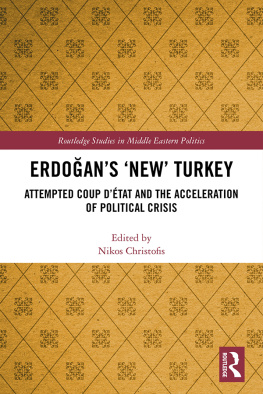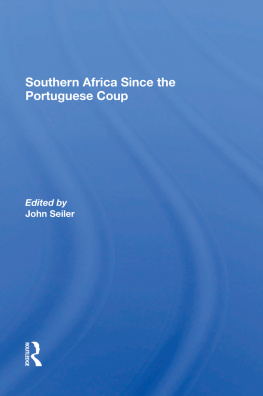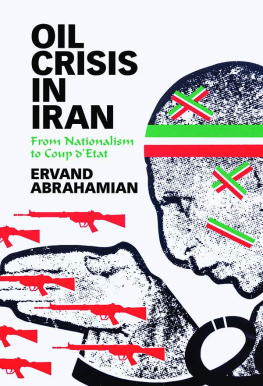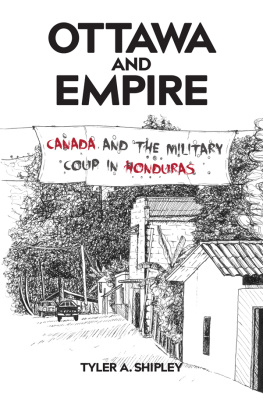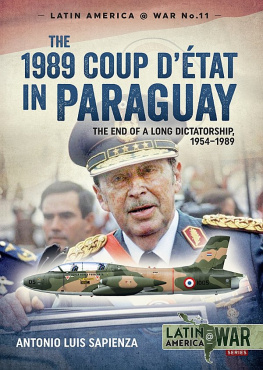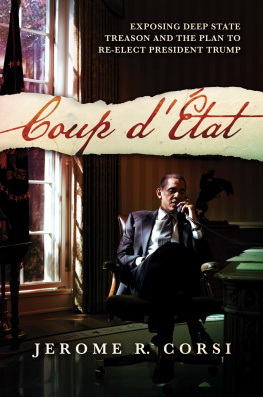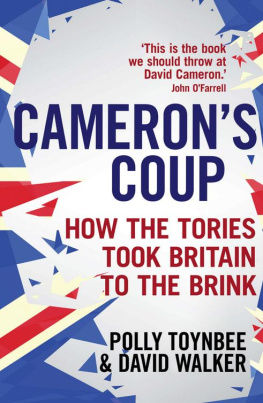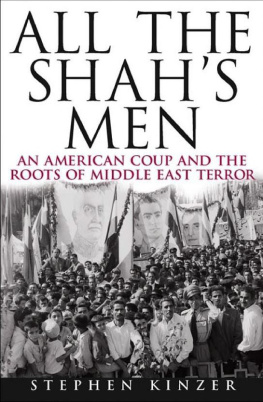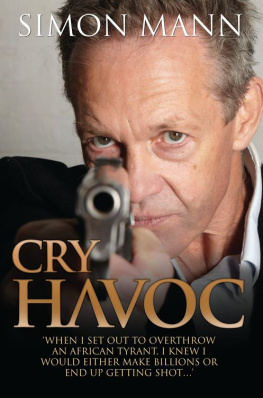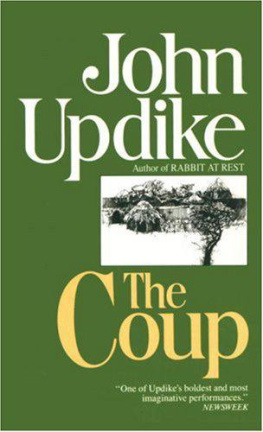MY FIRST
COUP DETAT
And Other True Stories from the
Lost Decades of Africa
John Dramani Mahama


Copyright 2012 by John Dramani Mahama
Map copyright 2012 by Gary Antonetti
This electronic edition published in July 2012
Ooh Child, words and music by Stan Vincent 1970 (Renewed)
Kama Sutra Music, Inc. and Frantino Music. All rights controlled and
administered by EMI Unart Catalog Inc. (publishing) and Alfred Music
Publishing Co., Inc. (print). All rights reserved. Used by permission.
Vietnam, written by Jimmy Cliff. License issued courtesy of
Universal Publishing/Island Music Limited.
All rights reserved. No part of this book may be used or reproduced in any manner whatsoever without written permission from the publisher except in the case of brief quotations embodied in critical articles or reviews.
For information address Bloomsbury USA, 175 Fifth Avenue, New York, NY 10010.
Published by Bloomsbury USA, New York
LIBRARY OF CONGRESS CATALOGING-IN-PUBLICATION DATA
Mahama, John Dramani, 1958
My first coup detat and other true stories from the lost decades of Africa /
John Dramani Mahama.1st U.S. ed.
p. cm.
ISBN 978-1-60819-886-3 (e-book)
1. Mahama, John Dramani, 1958 2. GhanaHistory1957
3. GhanaHistoryCoup detat, 1966. 4. Vice-presidentsGhana
Biography. 5. GhanaBiography. I. Title.
DT512.3.M35A3 2012
966.7054092dc23
[B]
2011053052
First U.S. edition 2012
www.bloomsburyusa.com
To the memory of my father, Mr. E. A. Mahama,
a man of humility and integrity, who lived
in service to his family, his people, and his nation
We plan our lives according to a dream that came to us in
our childhood, and we find that life alters our plans.
And yet, at the end, from a rare height, we also see that
our dream was our fate. Its just that providence had
other ideas as to how we would get there. Destiny
plans a different route, or turns the dream around,
as if it were a riddle, and fulfils the dream in
ways we couldnt have expected.
BEN OKRI

This is a work of nonfiction. I have changed the names of some individuals and modified identifying features, including physical descriptions and occupations, in order to preserve their anonymity. Occasionally, timelines have been compressed in order to further preserve privacy and to maintain narrative flow. The goal in all cases was to protect peoples privacy without damaging the integrity of the story.
Introduction:
The Lost Decades
THERE IS A period of time often referred to as the lost decades of Africa. That description speaks to the dismal post-independence performance of African countries during the 1970s and 1980s into the early part of the 1990s. The median per capita growth of developing African countries during those lost decades was 0.0 percent. It was a period of crippling stagnation, especially when compared with the era of liberation that preceded it, within which is also included the initial post-colonial period that began in the late 1950s and continued throughout the 1960s and the early 1970s.
The description lost decades is used primarily to address matters of economy and development, but during those years, other aspects of life in Africa were undergoing an equally marked period of stagnation, particularly the arts. During the era of liberation, an entire generation of visual art, literature, music, and international cultural exchange was empowered by the electricity of a continent shaking off its oppression. The Western world (and by that I mean the United States of America, Canada, Australia, and the countries in Europe, collectively) was introduced to dashikis, geles, fufu, and jollof rice; it learned the rhythms of highlife from Osibisa and of makossa from Manu Dibango. Miriam Makebas hit single Pata Pata had us all, in every country and on every continent, singing in Xhosa; and Fela Anikulapo Kutis new musical alchemy that he called Afrobeatwhich has recently made a ferocious comebackwas already turning heads and moving feet.
An entire canon of literature was created with books like Things Fall Apart by Chinua Achebe, Weep Not, Child by Ngg wa Thiongo, The Beautyful Ones Are Not Yet Born by Ayi Kwei Armah, and So Long a Letter by Mariama Ba. Yet this period of productivity, excitement, and unbounded creativity was short-lived as, during the 1960s, the continent ever so slowly devolved into what would ultimately become a lengthy cycle of political unrest and then, by the mid-1970s, made a rapid plunge into poverty.
During the lost decades, Ghanaand in fact all of Africaexperienced a brain drain, a mass exodus that found many of our artists, intellectuals, professionals, and politicians living abroad in either a forced or a self-imposed exile. As a result, that period of time and the direct impact it had on the cultural, educational, and political lives of those who remained has not been heavily documented, especially not from a personal perspective. They are years that are rarely discussed, years of untold difficulty and hardship, of ever-present hunger and fear. They are years that many have, understandably, tried to forget, to erase entirely from memory.
But rarely is anything all bad. There are always pockets of light, however small, to be found during periods of darkness. A number of us who stayed during the lost decades and lived through the difficulties, whether by choice or by force, discovered that it was, ironically, during this time that we found ourselves, our voices.
For many individuals, there is a moment that stands out as pivotal to the awakening of their consciousness. Often that moment can feel like a harbinger of disaster: the first tremors of an earthquake or rains of a hurricane, the eruption of civil war or riots, an assassination or a coup detat. It is a moment that serves as the line of demarcation, separating the certainty of what was from the uncertainty of what lies ahead. It is a moment in which you suddenly become aware of who you are; you become aware of the fragility and unpredictability of the world in which you live. Ghanas descent into the lost decades began with such a moment, with the coup detat that unseated our first president, Dr. Kwame Nkrumah. When I look back on my life, its clear to me that this moment marked the awakening of my consciousness. It changed my life and influenced all the moments that followed.
The lost decades, from that first coup detat to the final reintroduction of constitutional rule, were the years that defined my life, and as a result, they are the years that I have wanted most to write about, to commit not only to memory, but to paper. It was my desire, through the stories in this book, to document the effects that the events that occurred during those years had on the country and, more personally and specifically, on my family and me.
Each of the stories in this book is a memory of a specific incident or set of incidents, and true to the zigzag way in which memory works during the piecing together of a narrative, they are more fluidly circular than strictly linear, pulling in whatever is relevant and necessarysuch as historical facts and backgroundto complete the picture and help the experience make sense. Throughout the book, from one story to another, there are instances of what, on the surface, might seem to be repetition or overlap of the narration of events. However, the details of each event described are specific to the story being told and the contextual understanding of it. Because Africa is often thought of in monolithic terms, I also made every effort to be as specific as possible in the descriptions and details that I provided of the lifestyle and general atmosphere of the various towns, villages, and cities in Ghana and Nigeria. I wanted, in these stories, to explore the diversity that exists in Ghana, which is but one of the continents fifty-four countries.


